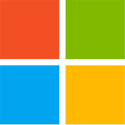
Steam Adds In‑Game Performance Monitor Overlay with Expanded Metrics
Valve has rolled out a significant upgrade to its in-game performance tools with the June 17 Beta client update. Instead of a simple FPS counter, Steam now offers a full Performance Monitor that tracks frame rate alongside CPU and GPU utilization, clock speeds, temperatures, and memory usage. Players can view real-time graphs for each metric or opt for a pared-down display showing only FPS. The overlay also flags when frame-generation features like DLSS or FSR are active, clearly separating true rendered frames from those created by upscaling technology. This clarity helps gamers understand whether a smooth experience results from extra generated frames or genuine improvements in rendering.
Competitive and detail-focused users will appreciate knowing both the true game-frame counts and upscaled FPS so they can fine-tune settings based on actual performance. If the monitor shows full GPU memory, reducing texture quality becomes an obvious fix, and if CPU usage is maxed out, dialing back physics or draw distance may be the answer. Currently, the Performance Monitor is only available to Steam Beta participants. Valve plans to roll out additional metrics over time and notes that not every feature will be compatible with every system from the start. Anyone curious to try the new tools should switch to the beta client and explore the updated overlay options. Once these features reach full release, millions of PC gamers will have powerful diagnostics at their fingertips, making it easier than ever to balance visual quality with smooth performance.
Competitive and detail-focused users will appreciate knowing both the true game-frame counts and upscaled FPS so they can fine-tune settings based on actual performance. If the monitor shows full GPU memory, reducing texture quality becomes an obvious fix, and if CPU usage is maxed out, dialing back physics or draw distance may be the answer. Currently, the Performance Monitor is only available to Steam Beta participants. Valve plans to roll out additional metrics over time and notes that not every feature will be compatible with every system from the start. Anyone curious to try the new tools should switch to the beta client and explore the updated overlay options. Once these features reach full release, millions of PC gamers will have powerful diagnostics at their fingertips, making it easier than ever to balance visual quality with smooth performance.






























































